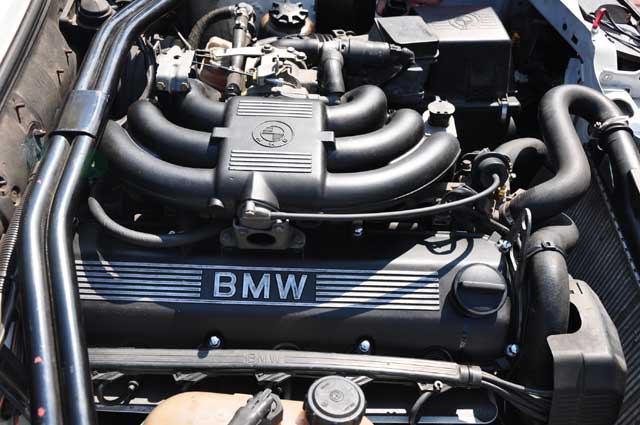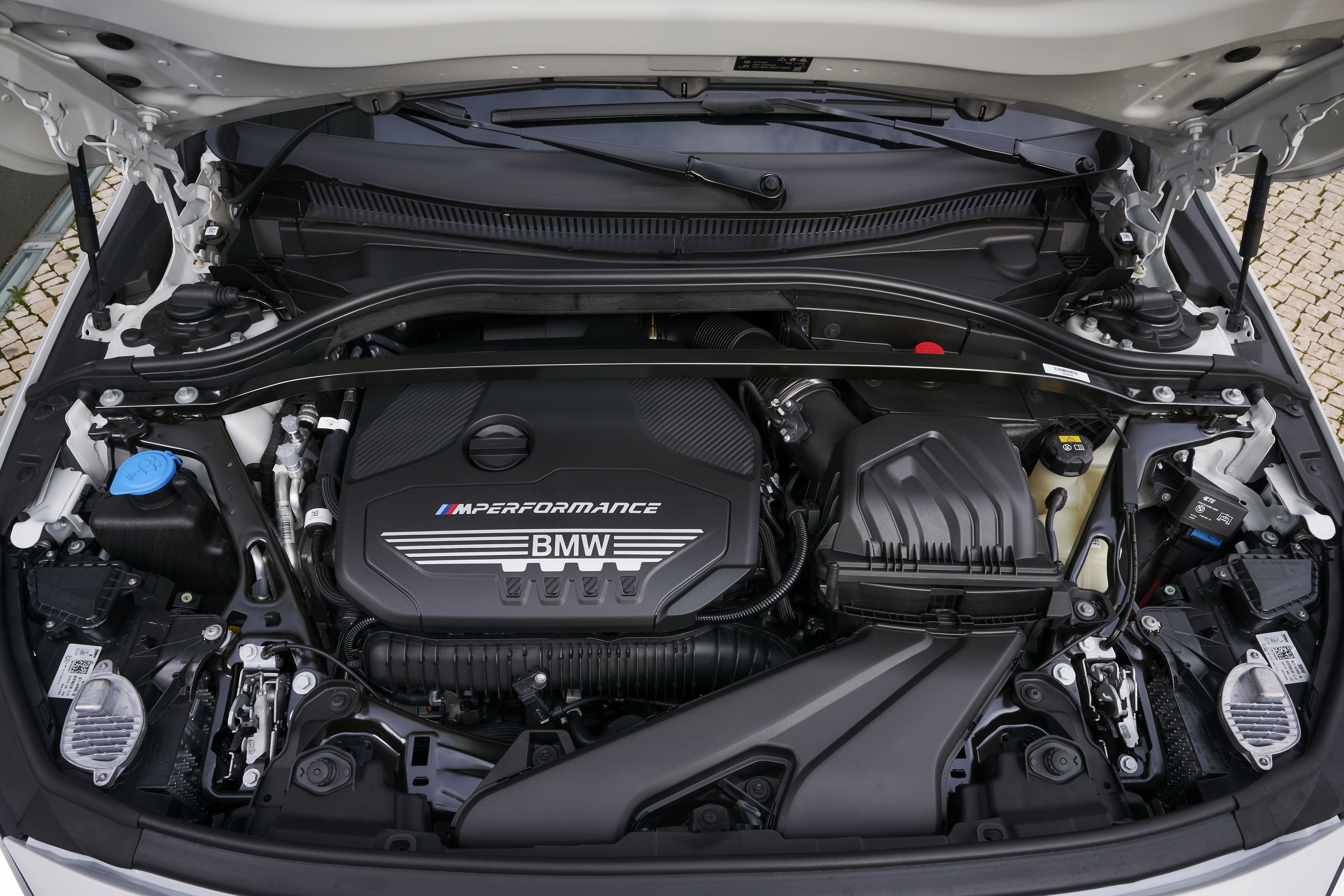Why the BMW Engine Is Considered Among the most effective in Deluxe Autos
Why the BMW Engine Is Considered Among the most effective in Deluxe Autos
Blog Article
Unveiling the Intricacies of Next-Generation Power Units: a Deep Dive Into Advanced Engine Styles and Innovations
In the realm of auto design, the relentless quest of sustainability, performance, and performance has moved the development of power devices to unprecedented elevations. As we stand on the precipice of a brand-new age in transportation, the complexities of next-generation engine layouts beckon us to check out the innovative technologies and technologies that promise to redefine the driving experience. From innovative materials that press the limits of durability and weight decrease to innovative turbocharging and supercharging systems that raise power outcome to brand-new levels, each element of these power devices holds an essential to opening the future of automotive engineering. Digging much deeper into the worlds of emission control, smart engine management systems, and the horizon of power device growth, we locate ourselves on the cusp of an improvement that assures to reshape the landscape of wheelchair as we recognize it.
Evolution of Engine Materials

The shift towards progressed engine products has likewise allowed designers to develop engines with greater power results while preserving gas performance standards. The usage of light-weight products lowers the total weight of the engine, leading to boosted gas economic climate and reduced discharges. Additionally, improvements in materials innovation have permitted better thermal management within engines, resulting in increased reliability and longevity.
Turbocharging and Supercharging Technologies
Just How do Turbocharging and Supercharging Technologies change engine performance and efficiency in modern-day cars? Turbo charging and turbocharging are modern technologies that considerably enhance engine performance by increasing the quantity of air intake right into the combustion chamber. Turbocharging achieves this by using a turbine driven by exhaust gases to pressurize the consumption air, while supercharging makes use of a belt- or chain-driven compressor to accomplish the exact same result.
These technologies enable smaller sized, much more fuel-efficient engines to generate power equivalent to bigger ones, recognized as downsizing. By compeling even more air into the cylinders, supercharging and turbocharging boost burning effectiveness, resulting in boosted horse power and torque outcome without a substantial boost in engine size. This causes better acceleration, lugging capacity, and general driving efficiency.
Moreover, supercharging and turbocharging contribute to boosted gas performance by allowing the usage of smaller engines that eat much less gas under normal driving conditions - bmw engine. This mix of enhanced performance and performance has actually made turbocharging and supercharging indispensable parts of many contemporary engine designs
Exhaust Control and Environmental Impact
With boosting international worries concerning air quality and ecological sustainability, the execution of discharge control innovations in cars plays a vital function in reducing unsafe pollutants released right into the environment. Modern automobiles are furnished with sophisticated exhaust control systems that aid minimize the ecological influence of automotive procedures. Catalytic converters, for example, are developed to transform harmful gases such as carbon monoxide gas, nitrogen oxides, and hydrocarbons see this site right into much less unsafe substances like co2 and water vapor.
In addition, advancements in engine technology, such as the integration of exhaust gas recirculation systems and careful catalytic reduction, have dramatically added to reducing emissions. These modern technologies function in tandem to maximize burning performance and decrease the release of harmful toxins right into the air. Additionally, the growth of crossbreed and electrical cars represents a critical step in the direction of reducing the total ecological impact of the transport field.
Intelligent Engine Administration Solution

Furthermore, these systems make it possible for lorries to meet rigid emissions criteria without jeopardizing performance, providing an extra eco-friendly driving a fantastic read experience. The integration of expert system and machine discovering capacities in engine monitoring systems proceeds to press the borders of what is possible, bring about further enhancements in efficiency, reliability, and general vehicle performance. bmw engine. As automobile innovation breakthroughs, smart engine administration systems will certainly play a vital function fit the future of transport towards a more lasting and reliable instructions
Future Trends in Power Device Growth
As smart engine monitoring systems lead the method for improved control and optimization in modern lorries, future trends in power system growth are poised to redefine the landscape of automobile propulsion innovations. These alternate power resources supply boosted performance and efficiency while aligning with rigid environmental guidelines.
An additional substantial pattern is the combination of innovative products and producing techniques. Lightweight products such as carbon fiber and light weight aluminum are being used to reduce general lorry weight, boosting gas effectiveness and efficiency. In addition, innovations in 3D printing and additive production are allowing the manufacturing of complicated engine parts with greater accuracy and longevity.
Additionally, fabricated knowledge and artificial intelligence are playing a critical role in optimizing power device performance. These innovations enable real-time monitoring and adaptive control, causing extra effective and dependable power delivery. In general, future patterns in power unit growth are tailored towards performance, performance, and sustainability, driving the automotive sector in the direction of a new age of propulsion innovations.

Final Thought
In final thought, the improvements in engine materials, turbocharging, emission control, and intelligent administration systems have led the way for next-generation power devices. These developments have not just improved performance and effectiveness but likewise minimized environmental influence. As modern technology proceeds to advance, future patterns in power system development are most likely to concentrate on additional improving sustainability and maximizing power outcome. The intricate styles and developments in modern engines display the ongoing evolution of auto technology.
Checking out the progressive innovations in engine materials has actually been critical in enhancing the efficiency and efficiency of contemporary engines. Over the years, the evolution of engine products has actually played an important role in pressing the boundaries of what engines can accomplish.The shift towards advanced engine materials has additionally enabled engineers to design engines with higher power outputs while maintaining fuel efficiency standards.The execution of intelligent engine management systems in modern vehicles has reinvented the way engines are controlled and maximized for performance and effectiveness. By collecting data in real-time and assessing it with innovative formulas, intelligent engine monitoring systems can check my source adapt to driving styles, ecological factors, and engine health to optimize power output while minimizing fuel intake and discharges.
Report this page